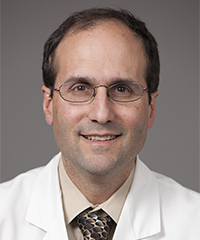Oncology
Metastatic Pancreatic Cancer
Advances in Surgical Resection in Metastatic Pancreatic Cancer
Overview
The incidence of metastatic pancreatic cancer has increased over the past several decades, and it now ranks as the fourth leading cause of cancer death in the United States. Despite the high mortality rate, there is optimism surrounding improved outcomes with newly developed treatment regimens and surgical approaches. Our featured experts in the field discuss advances in surgical resection in metastatic pancreatic cancer, including robotic surgery.
What advances are being made in regard to the impact of surgical resection on long-term survival in patients with metastatic pancreatic cancer?
Expert Commentary
Michael Morse, MD, MHS, FACP
|
|
|
Not being a surgeon, I can look more objectively at this because it traditionally was said that there was no role for surgery in people with metastatic pancreatic cancer, unlike colon cancer, where people with liver only or lung only disease are routinely having resections and a small proportion are permanently cured. There has actually been some interest in doing it with people with oligometastatic disease who have had a good response to therapy and have a prolonged period with no new sites of disease. Surgeons are actually starting to talk about resection of metastatic sites and even in some extraordinarily selected patients, considering approaches that involve resecting the pancreas lesion as well. It is uncertain how many patients this will benefit. In metastatic disease, the impact is fairly limited, but people are starting to think outside the box. Objectively speaking, the ability to do the type of procedures that were unthinkable in the past is allowing one to ask the question, “Does a surgical margin matter, and how wide a margin should one have?” There are some data that suggest that if you can get a larger margin, it does not have to be much, but the outcomes may be better. That speaks not only to surgical technique but to preoperative neoadjuvant therapy as well. If we can enhance the ability to have tumors shrink away a little bit more from the major vessels, then we can potentially get a slightly greater margin. |
|
Alok Khorana, MD
|
|
|
Generally speaking, the treatment of pancreatic cancer with surgery has been stuck with the same operation for the past 100 years or so. Although minimally invasive and robotic surgical techniques are increasingly being used and are almost always applicable for most pancreatic cancer patients, the good news is that perioperative outcomes are much better in 2017 than they were 10 years ago. Some data suggest that extending the benefits of margin negative surgical resection to more patients with an upfront neoadjuvant therapy approach, as opposed to a direct upfront resection approach, is likely to be more beneficial. Having said that, it is still very important to select the right patients and to identify patients who may have a higher probability of margin-positive disease. It is also important to make sure that whoever is doing surgery in pancreatic cancer patients is somebody who is not just a high-volume surgeon but also does these surgeries in a hospital that is a high-volume setting in pancreatic cancer. High-volume settings in pancreatic cancer have been associated with much lower rates of morbidity and perioperative mortality. Progress is being made in pancreatic cancer surgery in terms of bringing new surgical techniques, improving probability of no margin resections, and reducing perioperative morbidity and mortality. |
|
“Progress is being made in pancreatic cancer surgery in terms of bringing new surgical techniques, improving probability of no margin resections, and reducing perioperative morbidity and mortality.”
Thomas A. Abrams, MD
|
|
|
One of the current controversies in pancreatic surgery is the role of robotic surgery. I do think that the robotic technique allows for the potential for better surgeries that may have improved outcomes with respect to fewer complications—pancreatic leak being a really grave and not uncommon complication—and possibly even better rates of complete R0 resection, which absolutely relates to better survival. Surgical technique is not completely ossified. The robotic techniques, as they continue to develop and the data continue to mature, may show a survival benefit, and might become the standard moving forward as the technique is taught to more and more surgical oncologists. |
|
“The robotic techniques, as they continue to develop and the data continue to mature, may show a survival benefit, and might become the standard moving forward as the technique is taught to more and more surgical oncologists.”
References
Clancy TE. Surgery for pancreatic cancer. Hematol Oncol Clin North Am. 2015;29(4):701-716.
Lian PL, Chang Y, Xu XC, et al. Pancreaticoduodenectomy for duodenal papilla carcinoma: A single-centre 9-year retrospective study of 112 patients with long-term follow-up. World J Gastroenterol. 2017;23(30):5579-5588.
Maggino L, Vollmer CM Jr. Recent advances in pancreatic cancer surgery. Curr Treat Options Gastroenterol. 2017;15(4):520-537.
Osipov A, Nissen N, Rutgers J, et al. Redefining the positive margin in pancreatic cancer: impact on patterns of failure, long-term survival and adjuvant therapy. Ann Surg Oncol. 2017;24(12):3674-3682.













